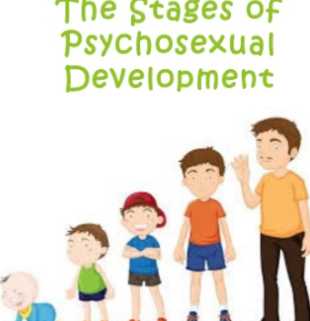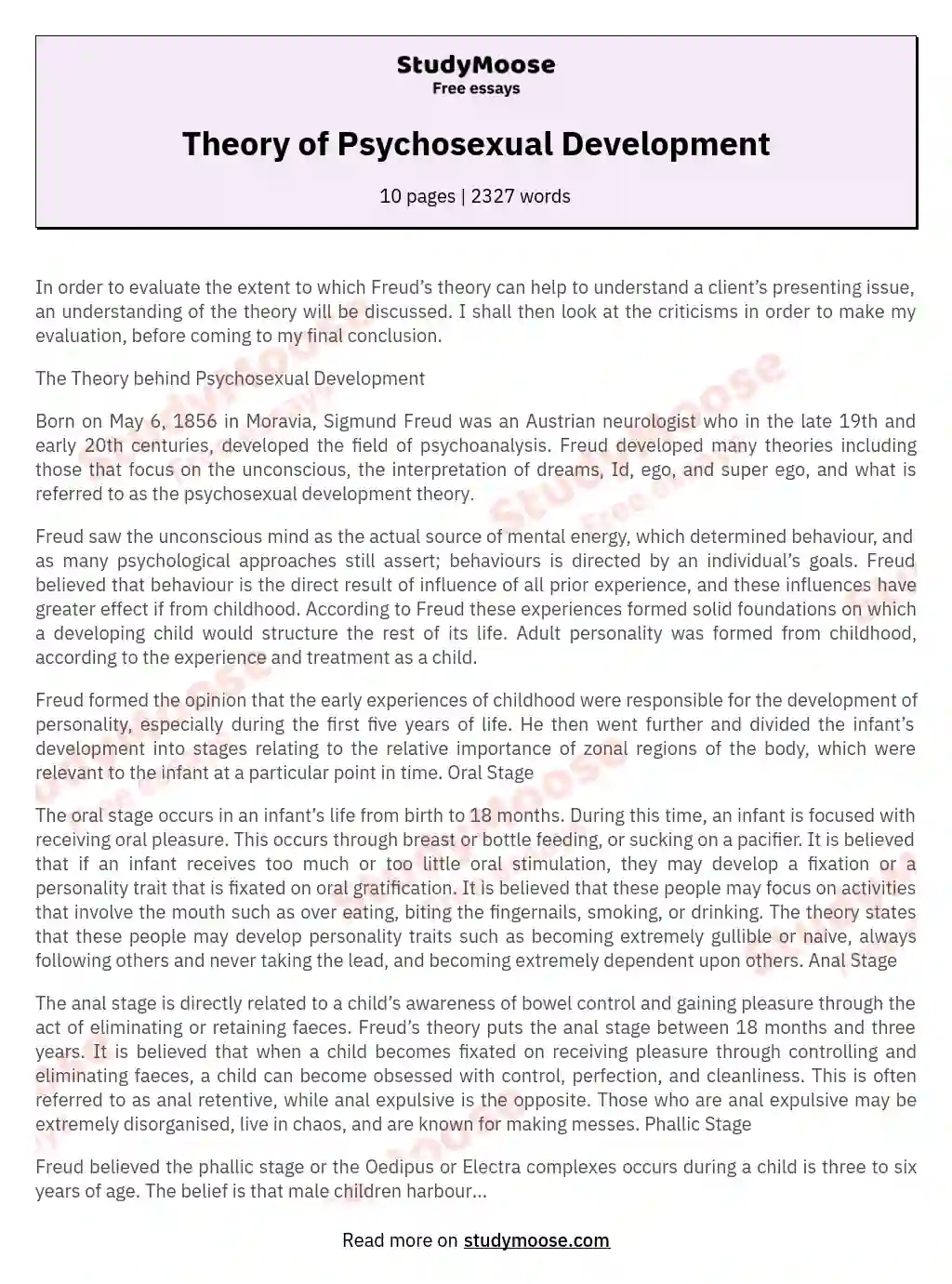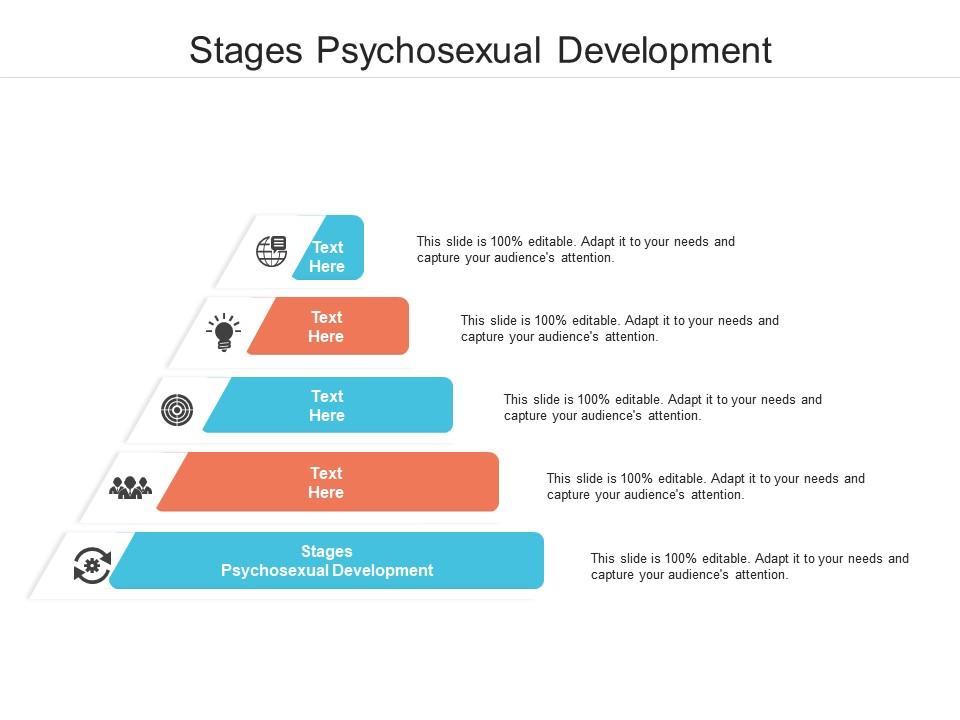Psychosexual stages are a theory of human development proposed by Sigmund Freud, a famous psychoanalyst. According to Freud, the human psyche (personality) develops through a series of stages focused on different pleasure-seeking behaviors centered on distinct erogenous zones of the body. These stages, which occur in infancy, childhood, and adolescence, are the oral, anal, phallic, latent, and genital stages.
The oral stage is the first stage of psychosexual development, and it occurs from birth to about 18 months of age. During this stage, the infant's primary source of pleasure is through oral activities, such as sucking, biting, and chewing. The infant's mouth is the primary erogenous zone, and the pleasure obtained from oral activities helps the infant to cope with the various stimuli of the environment.
The anal stage is the second stage of psychosexual development, and it occurs from about 18 months to three years of age. During this stage, the child's primary source of pleasure is through the anus and bowel movements. The child learns to control the elimination of feces, which can be a source of pleasure or frustration, depending on the attitudes of the parents towards toilet training.
The phallic stage is the third stage of psychosexual development, and it occurs from about three to six years of age. During this stage, the child's primary source of pleasure is through the genitals. The child becomes aware of the differences between males and females and begins to develop feelings of attraction towards the opposite sex. The child also begins to experience feelings of jealousy and competition with members of the same sex. This stage is also marked by the child's Oedipus complex, in which the child experiences a sexual attraction towards the opposite-sex parent and feelings of rivalry with the same-sex parent.
The latent stage is the fourth stage of psychosexual development, and it occurs from about six years of age to puberty. During this stage, the child's sexual feelings are suppressed, and the focus shifts to social and intellectual development. The child becomes interested in friendships, school, and hobbies, and sexual feelings are dormant.
The genital stage is the final stage of psychosexual development, and it occurs from puberty onwards. During this stage, the individual becomes sexually mature and capable of reproducing. The primary focus of pleasure is through sexual activity with a partner.
It is important to note that Freud's theory of psychosexual development has been highly influential, but it has also been subject to criticism. Some have argued that it is overly deterministic and ignores the influence of social and cultural factors on personality development. Despite these criticisms, Freud's theory remains an important and influential theory in the field of psychology.








